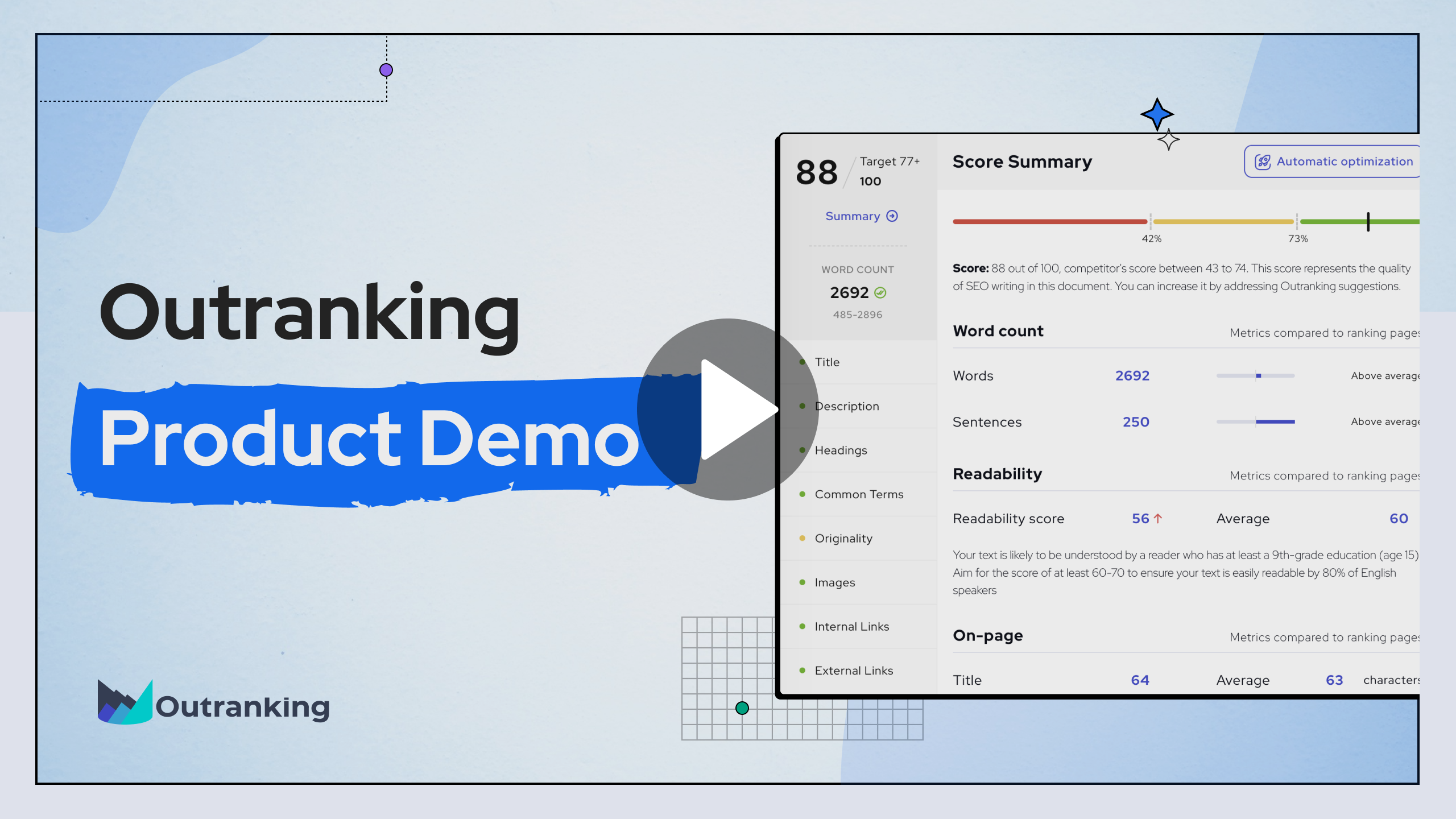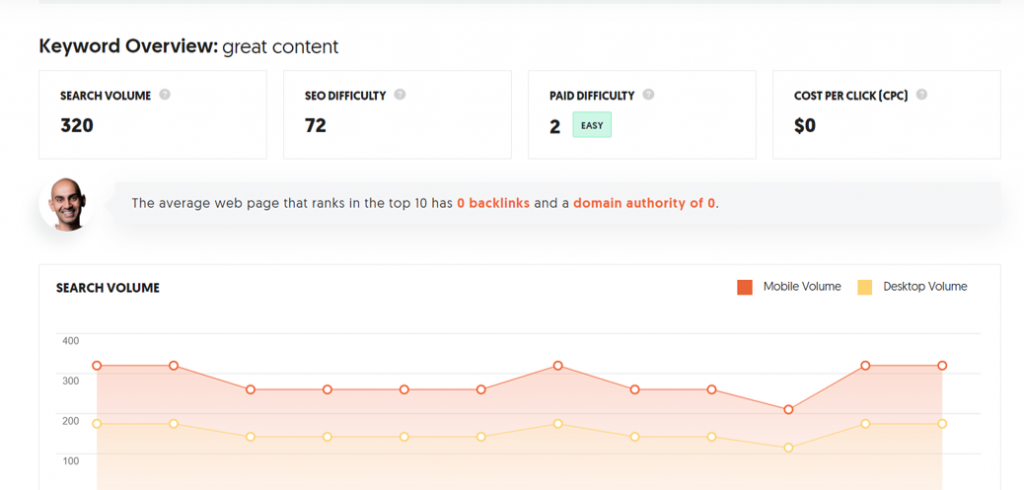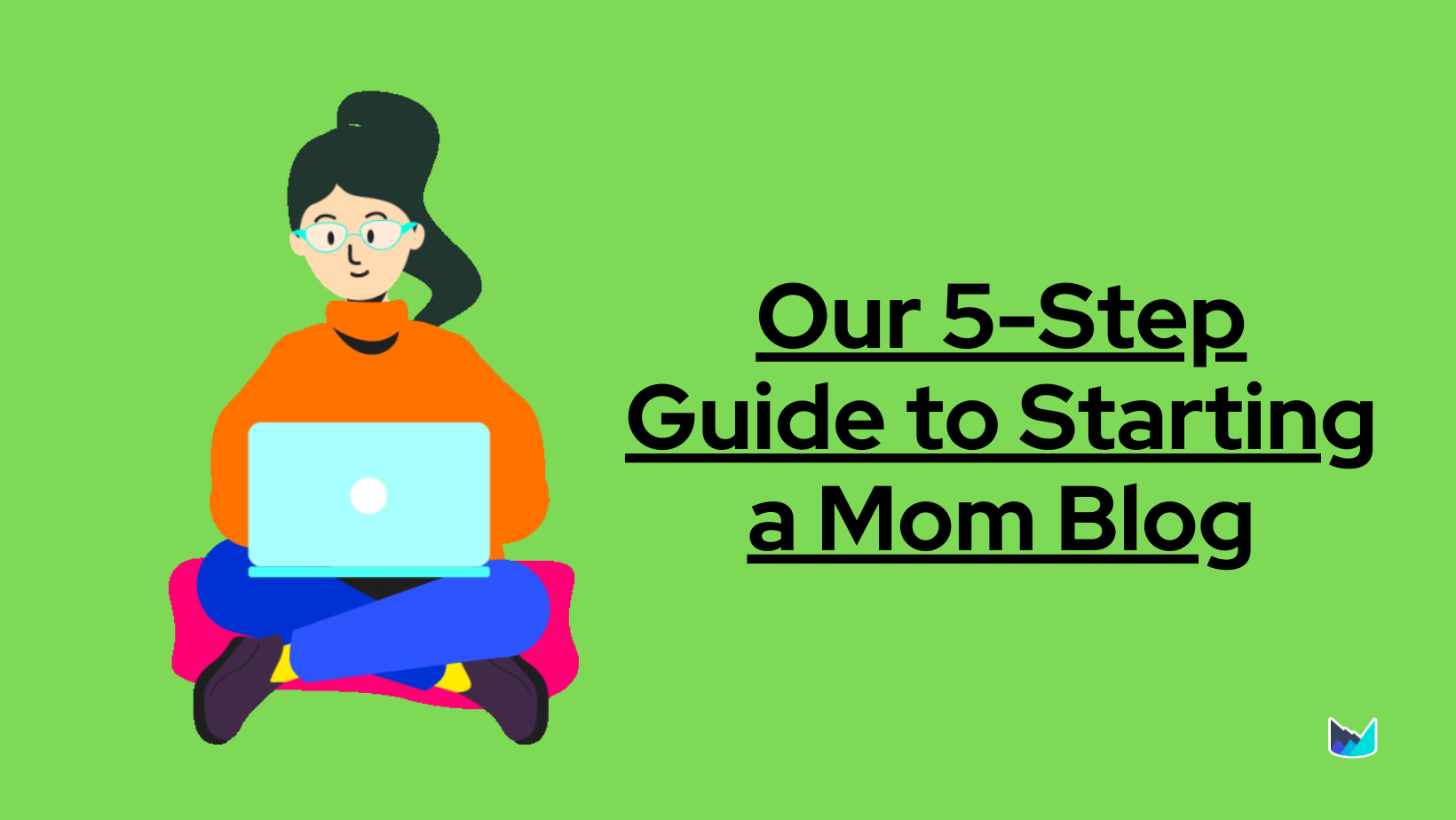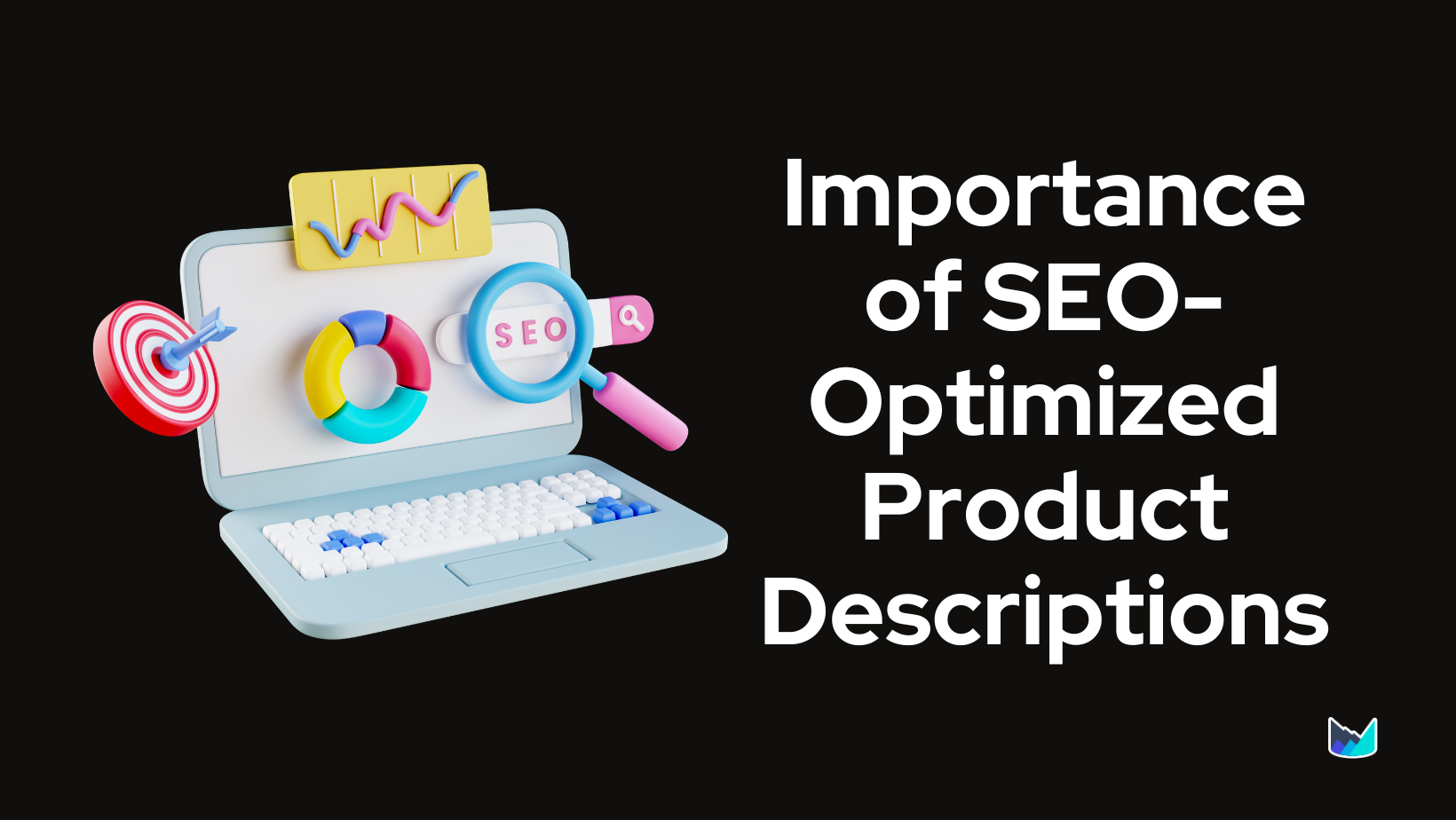- Product
- SEO Content Editor
- SEO Content Strategy
- Content Optimization
- Content Briefs
- AI Assisted Writing
- Keywords Clustering
Preview a demo walkthrough
Outranking the competition with our cutting-edge SEO strategies.

- Pricing
- Resources
- Sign In
- Get Started

Why Great Content Doesn't Always Rank Well, Even with a Killer Keyword
Table of Contents
True or false: Great content is always going to grab the top spot on Google.
That’s a bit of an unfair question, since “great content” is subjective. It also depends on who (or what) you ask: your readers or the Google search algorithm. What is the definition of great content, anyway?
We answered this in a recent blog post, How is the Definition of Quality SEO Content Changing?, but note that the standard is always evolving.
The truth is that there’s a lot of people writing great blog content out there. It might read well and provide helpful information, but it doesn’t do so well in the rankings.
The hard truth is that content, whether it’s great content for YouTube, a blog, social media, or your marketing, is not enough.
That doesn’t mean your content isn’t worthy, though; it simply means you’ve got some room for improvement.
So, what makes great blog content, great content marketing videos, or even a great content FAQ?
Let’s look at ten reasons why your content marketing might not be performing well, even if you have a best-of-the-best keyword leading the way:
Table of Contents
1. The main target keyword doesn’t match the search intent
Keyword research is the starting point for creating great content for your blog.
If you want to learn how to be a great content marketer, start with understanding who you’re writing for and why.
Search intent is everything when you’re choosing a keyword. It’s the why behind what your audience is searching for. When you choose a keyword, you need to make sure the keyword aligns with the reason a user is searching for content.
Search intent can be broken down into four categories:
- Informational (learning more about something)
- Navigational (finding a page)
- Transactional (finding products to buy)
- Commercial Research (comparing products to make a purchasing decision)
If you want to produce great content, first understand why your user might be searching for a keyword. This can help you tailor your content marketing to meet their expectations.
For example, a good content writer might use “freelancing” as the keyword. That’s not a great keyword because it’s hard to tell what the purpose behind that search might be.
Your audience might want information about what freelancing is, or they might want to learn how to freelance. They might want to buy a freelancing course, or maybe find freelancers near them. It’s just not specific enough.
If you’re a freelance coach (and a great content writer), then “learn to freelance” might be a better keyword. It gives the search more context. It also makes creating great content much easier because your content will be relevant to your audience.
2. Your keyword density is too low or too high
You can write great content with a high-volume keyword that matches your audience’s search intent and still not rank well. One possible cause is that you’re not using your keyword correctly.
Keyword density refers to the number of times your keyword appears in your content relative to the overall word count. For example, if you write a blog post that’s 1000 words, then using your keyword 10 times would give you a 1% keyword density.
What’s an ideal keyword density?
SEO experts advise you to aim for a 1%–2% keyword density. Not using your keyword enough (and in the right places throughout your content) can weaken your SEO.
Also, using it too many times makes you guilty of keyword stuffing. Search algorithms will punish you for it.
Ideally, you should use your primary keyword in the title and at least one H2 header. It should also appear in the introduction and conclusion. Sprinkle it throughout the body of the content as needed.
Also, try variations of your keyword to avoid too high density. Synonyms and related terms can help to add context without penalizing you.
3. You’re relying only on keywords for SEO

When you’re writing great content, you usually start with keyword research. From there, you build your content marketing around specific keywords.
But SEO doesn’t end with keywords.
Fully optimized content includes many elements, such as:
- Internal and external links
- Mobile-friendly design
- Title and meta tags
- SEO-friendly URL structure
- Sitemap (robots.txt file)
- Images with alt text
- H1, H2, and H3 tags
- Easy-to-read content layout
This is not a complete list by any means, but it should give you an idea of just how complex SEO can be!
Working with someone who speaks SEO as their second language can be highly valuable. You can outsource your SEO to an expert. Or you can pick their brain and become an expert yourself.
How to create great SEO content
Great content design goes beyond keywords. If you’re ignoring the technical elements and on-page search engine optimization, your rankings will struggle even when you create great content.
So, what defines great content? The simple answer is to take all elements of SEO into account.
Your content will look better to search engine algorithms, which can mean more views from your human audience.
And when content looks great from a human standpoint, it gets more clicks, shares, and conversions, which can all help you in your SEO journey.
4. Your Domain Authority is low

Search engines like Google have an important job: to return the most relevant results to their users. One way algorithms do this is by prioritizing quality content from sites that seem reputable. Domain Authority is a powerful signal of a website’s reputation.
Think about it this way: If you wrote an article about how to use Instagram Stories, and then Instagram itself wrote a similar how-to article on Instagram Stories, which one do you think would rank higher?
Clearly, Instagram is the expert on the topic. More people are likely to link directly to the words from the horse’s mouth. Even if you’re serving up great content, Instagram’s Domain Authority would tip the scales in its favor.
How to build higher domain authority
You build Domain Authority through website traffic and backlinks. The more websites that link to your content, for example, the better it looks to algorithms. This is especially true if you have high-authority websites linking to you. It makes you look good by extension and makes your content more legitimate if other websites trust it enough to send their readers to it.
5. Your content is too short
Content length could be holding you back from higher rankings. There are a couple of reasons for this:
First, consider the topic. If other websites are writing on the same topic and their content is twice as long as yours, this could work against you. Search algorithms might not think you’ve covered the topic well enough. Remember, they want to give their users the best possible experience, so comprehensive content may get a boost.
And second, longer content gives you more opportunities to work in more keywords. The more keywords, even variations of your primary keyword, the more context you give the algorithms.
What’s the ideal content length?
There is no magic number for content word count, although long-form articles tend to rank better than shorter articles. It largely depends on the topic and how other people have covered it.
You can do some research to see the average length of other quality content that shares your topic. Look for what the highest-ranking results are missing and see where you can fill the gaps.
6. Your great content is old or untimely
At some point, your content probably mattered. Maybe it covered a timely event or trend. Or maybe it was among the first of its kind to talk about a new topic.
But over time, your great blog content ages. At some point, it becomes irrelevant if you don’t keep it updated.
Search engines want to return the most relevant results. That’s why, when you search for something like “iPhone,” you’re not seeing blogs and ads for the iPhone 3G. We’re way past that!
Even evergreen content needs sprucing up. Links become broken, sources become old, and better stats and information become available.
Remember, Google’s goal is to make the search results as relevant as possible. This is one reason Google gets more than 85% of all searches and Bing only gets about 6%. It’s because Google knows the value of quality!
How to update great pieces of content
If you don’t want to start from scratch, you can always update old content with a fresh perspective. Swap out links, stats, and quotes for better materials. Add to your content to cover more details you might not have known at the time of writing. Take out anything that no longer matters. Add more keywords as they naturally fit.
These changes give Google a reason to crawl your content again, which could help you to start ranking higher.
7. Your website speed is too slow

Sometimes, rankings have nothing to do with the content itself. Rather, it’s more about the technical side of SEO.
From a user’s perspective, there’s nothing more frustrating when you need information than a website that won’t load. Page load time is an SEO killer. Nearly half of consumers expect websites to load in just two seconds. For every second after that, you’re going to see less organic traffic.
Traffic is a big deal when it comes to rankings. If people are continually bouncing off your website, search algorithms won’t have a good impression of your content. You will likely slip in the rankings, even if you otherwise have great content to share.
How to improve page load speed
You can test your website speed with free tools like Pingdom. If your page load time is anything greater than five seconds, you should try to reduce it as much as possible.
Some areas to check are:
- Image file size
- HTTPS requests
- JavaScript files
- Hosting providers
Simplify the number of elements on your website. Combine files when possible. Running a compression audit can also help you decrease page load time.
A few simple changes might be all you need to start ranking well.
8. No one is searching for your topic
Before you start picking apart your great content creation, stop and ask yourself: Is my content even relevant?
Rankings mean nothing if people aren’t searching for what you’re writing about.
Marketers have a habit of automatically thinking they’re writing content their audience cares about. In reality, you should be researching trends and topics and designing content around known needs.
If people aren’t searching for what you’re writing, you can’t exactly “rank” for it. And if you do somehow manage to rank on page 1 for your niche idea, getting traffic is another story.
You can solve this challenge by doing a bit of research first.
Find trending topics using web tools
Do you know how to find great content to share? It could be great video content, a great content review, or even great content examples that people seem to like.
It doesn’t matter what type of content you’re looking for. Use tools like Ubersuggest or Google Trends to see what people are searching for. Then, find a relevant keyword and design your content around those conversations.
Learn how to create great content for social media
You can also validate ideas for great content on social media.
Creating great content for social media starts with seeing what others are sharing. What’s going viral? What gets likes, clicks, and comments?
You should know how to write great content for a blog once you have a topic in hand.
9. Your keyword is too competitive

One of the fundamental rules of keyword research is choosing a keyword with a high search volume. The other fundamental rule is choosing one that you have a real chance of ranking for.
Some keywords are more competitive than others. If you’re using a keyword tool like Ubersuggest or ahrefs, you can see the competition as well as the search volume.
Something else worth noting is that keywords have two competition scores: one for organic searches and one for paid searches. These two scores are not usually the same.
This can be helpful if you are searching for keywords to use in your pay-per-click ad campaigns.
How to find your domain authority
Domain Authority is a metric created by Moz.
You can find your domain score for free by visiting Moz.com and using their free SEO tools.
How to choose keywords you can actually rank for
If you have a relatively low Domain Authority (DA of 40 or below), choose keywords that are easy to rank for. These are usually scored on a scale of 1–30.
In the example above from Ubersuggest, the term “great content” has an SEO difficulty of 72 but a paid difficulty of just 2.
Ultimately, this means that the keyword “great content” will likely be a great candidate for your ad strategy. If you don’t have a great domain score, it might be hard to rank for this term organically.
Higher-DA websites may have a better chance of ranking for competitive keywords. However, if it’s rankings you’re after, it’s a good idea to grab the low-hanging fruit first and eat your way up the ladder.
10. Your content links to poor sources
Ever heard the phrase “You are the company you keep”? This same sentiment holds true when linking to outside sources.
Every link you add to your content is essentially a backlink for that source. While it’s good news for them to earn a backlink, it can be bad for you if that source is a bad apple.
Linking to spammy websites and pages with security issues or otherwise poor information reflects right back onto you.
Maintain a squeaky-clean image by linking only to trustworthy, accurate, and authoritative sources. This is one of the key hallmarks of great content.
How to create great content for your website
Your search for the meaning of great content has come to an end. By now, you should know how to be a great content strategist by going above and beyond the basic keyword.
Learning how to write great web content isn’t just about choosing the right keyword. It’s also knowing how to use that keyword strategically and integrate it with all the other moving parts of SEO. Just look at other great SEO content strategy examples and follow their lead.
Tools like Outranking.io take the guesswork out of what quality content needs to rank well. Does AI content rank? Yes. Outranking measures everything from keyword density to length and finds opportunities to turn you into a subject matter expert.
It’s not just about what you know, but also about augmenting your knowledge with strategies and tools for better results. Taking that extra step is the hallmark of a real expert. For more insights, head back to the Outranking.io blog.



